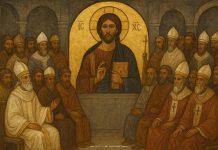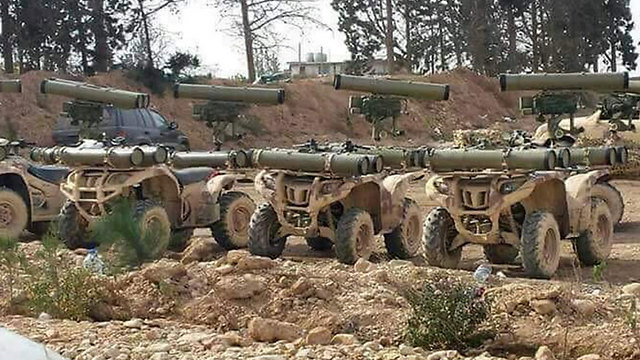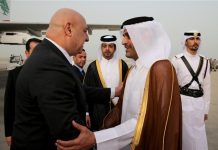Is Israel linked to Hezbollah’s agenda?
Khairallah Khairallah/Al Arabiya/February 16/17
The pertinence of Hezbollah’s agenda can be viewed through its flexibility to continuously identify with the Iranian project countering Israeli interests. However, this agenda was not always nor exclusively anti-Israel.
President Michel Aoun has long asserted that Hezbollah’s agenda does not contradict with the interests of the Lebanese state. Hence he justified the existence of Hezbollah with the Israeli occupation. Yet, the president’s statements are now obsolete when dealing with Israel and would only deserve Lebanon through a renewal of the devastating scenario of summer 2006.
The president’s declaration sparked outrage and some even described him as covering for illegal weapons and questioning the ability of the Lebanese army at a time when the latter is undergoing efforts to restructure and elevate the country military institution.
Nonetheless, insinuating a link between Israel and Hezbollah is quite inadequate since the latter is but a permanent custodian of the Revolutionary Guard. Hence, Hezbollah serves solely the interests of the Islamic Republic of Iran whose project, in its turn, revolves around funding and igniting sectarian interests.
Furthermore, any link between Israel and Hezbollah is misplaced within the Lebanese context as well as the region in general, and addresses more important questions revolving around the threat posed by the Iranian project. This inadequacy could be explained in different ways.
Indeed, from the perspective of the United Nations, Israel does not occupy any Lebanese territory since by the turn of the century the UN officially declared Israel’s withdrawal from Southern Lebanon in implementation of resolution 425 previously adopted by the United Nations Security Council in 1978. As for the occupied Shebaa farms, which were originally Lebanese territory, they are also subject to the UN Security Council’s 242 decision (already applied in 1967 on the Syrian Golan Heights).
It is impossible to ignore Hezbollah’s role in intensifying militia and sectarian divisions in Iraq as well as deteriorating Lebanese-Arab relations
Tripartite aggression
It is no secret that the Shebaa Farms were occupied by Syria in 1956 following the tripartite aggression against Egypt. As demonstrated by President Sami Solh, who was prime minister in 1956 during the era of Camille Shamoun, Syria employed Israeli threat as an excuse to gain a strong foothold in Shebaa.
To this day, the Syrian regime has refused to acknowledge that the Shebaa Farms are Lebanese territory. If it did, it would have provided a strong argument to force the Israeli withdrawal from the region, consequently annexed to Syria.
Yet, in contrast excuses and flimsy justifications where used to legitimize the persistent presence of Hezbollah in Lebanon despite the application of resolution 425 and the withdrawal of Israel from the South of Lebanon. In fact, Hezbollah’s presence allowed a continuous trade connection between Syria and Iran through the Shebaa Farms and the Golan Heights which in turn opposed the interests of both the Lebanese and Syrians.
The Iranian project
The particularity of Hezbollah lies in its aptitude to constantly identify with the Iranian project. As a matter of fact, Hezbollah’s agenda did not always seek to resist and oppose Israel and long strived to eliminate leftist Lebanese parties engaged into Israeli resistance. These parties were prematurely silenced before the creation of the Amal movement. The latter was involved in violent clashes and thousands of deaths in Lebanon and finally co- opted for a truce and a coexistence with Hezbollah within Lebanon.
Thus, before even the withdrawal of Israel from Lebanon, Hezbollah used the Palestinian agenda so as to serve the interests of Iran and held the Shiite community in Lebanon as a hostage to Iran. Nonetheless, even after Israel’s withdrawal, Hezbollah’s agenda served other interests ultimately with the aim of turning Lebanon into a sort of colony through which Iran can operate against other Arabic countries, especially in the Gulf.
Furthermore, Hezbollah’s involvement in Yemen is clearly perceptible even when knowing little of the country’s political developments. In fact, Hezbollah has supported the Houthis (Ansar Allah) for over 15 years. It is needless to point out Hezbollah’s responsibility in the military training received by rebels in Yemen and abroad.
It is also pointless to highlight the latter’s complicity in recent occurrences in both Saudi Arabia and Bahrain and even Jordan at some point. It was precisely these involvements which prevented the presence of King Abdullah II from the Arab summit held in Beirut in March 2002. Hence, the role played by Hezbollah outreached the Lebanese borders for a long time, but also came to play an important role in the displacement of Syrians from their land amidst an absolute coordination between Russia and Israel regarding Syria.
Sudan and Egypt
In this context, it is also possible to mention Hezbollah’s entanglements in the politics of Sudan and Egypt during the era of President Hosni Mubarak. Hezbollah was responsible for the smuggling of weapons into Gaza as well as the West Bank and proceeded in the interests of Hamas as well as parties hostile to the Palestinian national authority.
On another note, it is impossible to ignore Hezbollah’s role in intensifying militia and sectarian divisions in Iraq as well as deteriorating Lebanese-Arab relations. However, it is important to recognize that Hezbollah’s agenda has been long used on a domestic level and that on several occasions.
Indeed, the latter endeavored to protect the main suspect in the assassination of Rafik Hariri and his companions and prevented the House of Representative from electing a president for more than two years. Countless examples exist of Hezbollah’s accountability in spreading the culture of “hate” in Lebanon.
Furthermore, this agenda breaches both resolution 1559 and 1701 issued by the Security Council although Hezbollah approved of each character in resolution 1701, which halted the hostilities with Israel of summer 2006.
The altercation with Israel was not only ignited by Hezbollah but turned out into a testimony of Israel’s victory. Till this day, Lebanon is suffering from the consequences of that war. It led to illegal weapons in and outside the Lebanese territories as well as constant threat to the country’s institutions, including its army and security forces.
**The article is also available in Arabic.
__________________________
Khairallah Khairallah is an Arab columnist who was formerly Annahar’s foreign editor (1976-1988) and Al-Hayat’s managing editor (1988-1998).






















